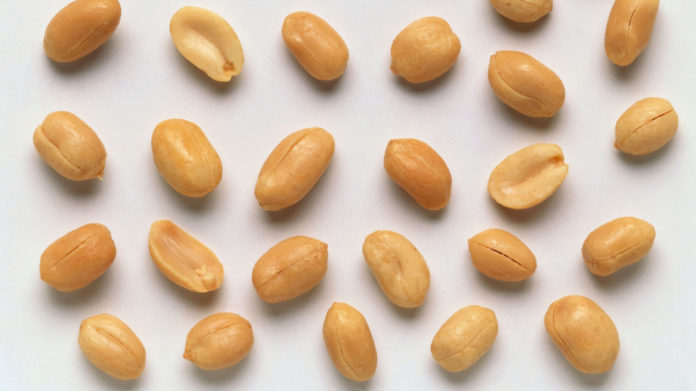Feeding kids peanut products could actually reduce risk of allergy

LONDON — It might sound counterintuitive, but a new study by British scientists says that feeding children peanut products could dramatically reduce the risk of an allergy developing.
In trials involving 640 infants at high risk of being susceptible to a peanut allergy, researchers from King’s College London found that the early introduction of peanuts decreased the number of cases. The research was published in the New England Journal of Medicine.
The study found that when the children reached 60 months of age, 13.7% of participants in the group avoiding peanuts had developed an allergy, compared with 1.9% in the group eating peanut products.
In a separate, smaller segment that had already tested positive for sensitivity to peanuts, 35.3% of the group avoiding peanut products had developed an allergy at 60 months, while 10.6% of the group consuming peanut products had an allergy.
“Our findings showed that early, sustained consumption of peanut products was associated with a substantial and significant decrease in the development of peanut allergy in high-risk infants,” the study says.
The authors of the study are currently examining whether the participants in the trial would remain protected against a peanut allergy even if they stopped eating peanut products.
Peanut allergies are a growing problem in the Western world with the number of cases doubling in the past 10 years and instances now appearing in African and Asian countries.
In the UK, allergies to nuts, nut products and some seeds affect up to 2% of the population, according to the NHS, while in the U.S., 1.4% of children have a peanut allergy, according to a 2010 study from Mount Sinai Hospital in New York City.
Between 1998 and 2000 doctors advised parents to exclude peanuts from the diets of children at high risk of developing an allergy. Mothers at risk were also told to stop eating peanuts while pregnant and breast feeding. This advice was withdrawn in 2008. But until this study it wasn’t clear whether early exposure was a help or hindrance.
Following the release of this study, parents have been warned to consult a specialist before introducing peanut products and not to experiment at home.
Have something to add to this story? Share it in the comments.
